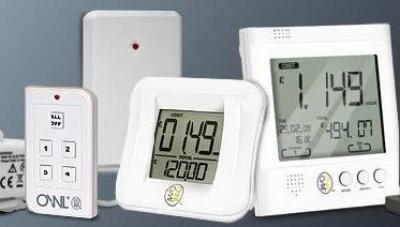2016 Smart Meter Target May Benefit BT Group

Moving the UK’s target ahead to 2016 could benefit a group of companies, including BT, bidding for the project
Industry analyst Ovum believes that government plans to push forward the already ambitious target to roll-out around 48 million meters in the UK by 2020 will benefit a group backed by BT and Arqiva.
According to a report released by the analyst this week, the government may look to move forward the smart meter target to 2016 and this could benefit a bid announced earlier this week from a group of companies including BT and radio communications specialist Arqiva.
“We believe that Arqiva’s existing network infrastructure could well be its most powerful sales message,” said Stuart Ravens, principal analyst at Ovum. “Installing approximately 10 million meters per year (after a couple of years of small-scale pilots) will be a tough enough target to meet without first building out a communications network.”
From 2020 To 2016
 The fact that Arqiva already has a substantial radio network in place means that it could benefit if the coalition government delivers on numerous hints that it might push forward the deadline for rolling out smart meters to 20 million-plus UK homes to 2016.
The fact that Arqiva already has a substantial radio network in place means that it could benefit if the coalition government delivers on numerous hints that it might push forward the deadline for rolling out smart meters to 20 million-plus UK homes to 2016.
“While we believe that the old Labour administration’s target that 100 percent of electricity and gas meters be smart by 2020 was ambitious, the new coalition government may well accelerate these plans. 2016 is rumored to be the new target for smart meter deployments,” said Ravens. “If this is the case then Arqiva’s existing, dedicated wireless network could well become its single biggest asset in the bid for the DCC [DataCommsCo] role.”
According to Ovum, while Arqiva does have wireless infrastructure in place already it does not have a strong pedigree in the smart meter arena and has to pull together with several partners to compete for the UK’s roll-out of power-meters.
“Arqiva recognised that its fixed-mast wireless network could be used for UK smart metering applications; however, it had no previous experience in the sector,” said Ravens.
The company has subsequently partnered with US smart metering specialist Sensus, which it has been collaborating with since 2009. It has also announced partnerships with data specialist Detica, the analyst explained.
“To stand any chance of providing the communications network for the UK’s smart meter infrastructure, Arqiva must allay any security fears about the transmission of energy usage over an IP network,” said Ravens. “To fill in this particular gap, Arqiva approached long-term partner Detica. Detica and Arqiva collaborated on a project for the Metropolitan Police, where London’s beat officers have been provided with PDAs that allow them to access centralised data while in the field.
Also announced earlier this week, Arqiva announced a tie-up with BT which sees the wireless specialist making use of BT’s wired infrastructure to connect consumer smart meters back to power utilities – the so-called “smart grid” element of the project.
“BT will bring its experience in dealing with large projects involving millions of customer end points, while also providing the backhaul communications of meter data to the utility,” said Ravens. “BT will also bring data centres, data aggregation, and billing experience to the table.”
Ofgem Proposals This Month
Costs for the consumer and utility aspects of the project are expected to run into the billions with Department of Energy and Climate Change and Ofgem set to release firmer proposals for the plan later this month. The partners claim that after analysing the government’s plan, they will flesh out their own proposals in a report to be released in September.
Despite the ambitions of BT and its partners, smart meter and associated grid technology has been slow to take-off in Europe, according to insiders. Speaking at a conference in May, Ian Mitton, HP’s utilities industry director and global leader on smart grid technology, admitted the technology wasn’t being deployed as quickly as experts hoped. “I think one of the problems is that in a good many parts of the world – projects are not happening fast enough. Smart grid and smart meter projects are slow to take off,” he told eWEEK Europe UK at the time.